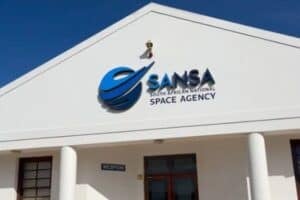The parties say the ANC can't be the 'referee and player in the same game'.

Opposition parties have called for a separate parliamentary committee be established to deal with the State Capture Commission’s reports.
MPs from different parties – including Democratic Alliance (DA), the United Democratic Movement (UDM), Economic Freedom Fighters (EFF), Freedom Front Plus (FF+) and the Inkatha Freedom Party (IFP), among others – convened a meeting with National Assembly Speaker Nosiviwe Mapisa-Nqakula on Wednesday to discuss a number of issues.
One of the matters arising from the agenda was state capture, since Parliament has already began establishing “appropriate systems” to process and oversee the implementation of Chief Justice Raymond Zondo’s reports.
ALSO READ: DA pushes for Parliament to start dealing with Zondo reports, but fails
During the meeting, the opposition suggested that a committee be established to deal solely with state capture, but ANC must be excluded from this process as some of the governing party’s members have been implicated in Zondo’s report.
“Since ad hoc committees are typically the conduit for Parliament to process ad hoc matters, as would be expected with the Zondo commission’s reports, the opposition leaders expressed concern at the composition of a future ad hoc committees that would be dominated by the ANC as per the current representation model,” UDM president, Bantu Holomisa said on behalf of the opposition.
‘Referee and player’
Holomisa said the parties agreed that it was problematic for the ANC to be the “referee and player” in the committees as this would result in many of its members not being held accountable.
While Mapisa-Nqakula has since sent letters to those implicated in state capture to inform them that Parliament’s Joint Committee on Ethics and Members’ Interests would conduct a probe, she would consider the opposition parties’ concerns.
“The Speaker has undertaken to consult on the matter and inform the opposition leaders of her views on Tuesday.
READ MORE: ‘Frolick’s version is self-serving’: Zondo suggests probe over alleged corruption
“It was, however, resolved that Parliament must obtain independent legal advice from senior counsel to interpret the role of the ruling party in such processes as they were beneficiaries of state capture,” Holomisa said.
All the four volumes of the state capture’s reports so far have painted a picture of how the ANC allegedly benefitted from proceeds of corruption via donations, to influencing decisions and appointments made in government departments and state-owned enterprises (SOEs), among other things, during former president Jacob Zuma’s tenure.
Parliament probes
The Joint Ethics Committee has been tasked to investigate possible contraventions of the parliamentary code of conduct during the state capture era.
This applies to current members, who were serving in Parliament when any alleged transgressions took place, according to Parliament spokesperson Moloto Mothapo.
Parliament also clarified last week that President Cyril Ramaphosa would not submit all outstanding state capture reports, along with the implementation plan, in August as previously mentioned.
This is due to the extension – until 15 June – that was granted to the Zondo Commission comes to complete its work.
READ MORE: Ramaphosa hands over fourth state capture report to Parliament
The previous extension was granted earlier this year until 30 April.
The latest extension means that Ramaphosa has about four months to table a plan in Parliament on how he will deal with the commission’s recommendations upon receipt of the final report.
The president now has until October to do so, but since handed over part three and four of the commission’s report.
The part three of the commission’s report dealt with the conduct of current and former MPs implicated in allegations of state capture as well as Bosasa, among others, while the fourth volume included findings on Eskom, National Treasury, the Free State asbestos project, and the R1 billion housing project.






